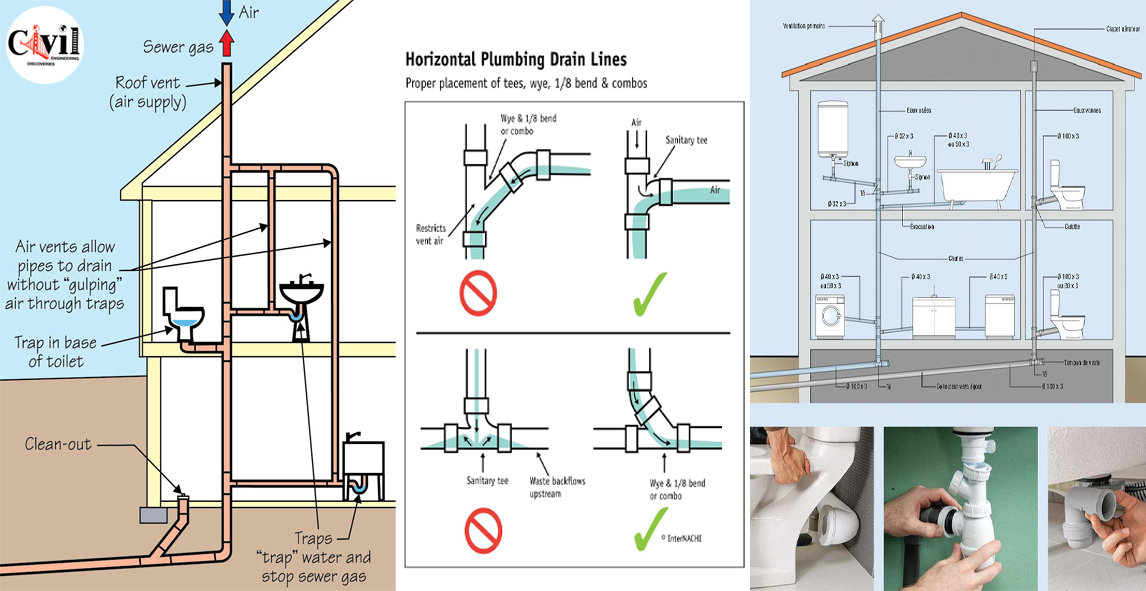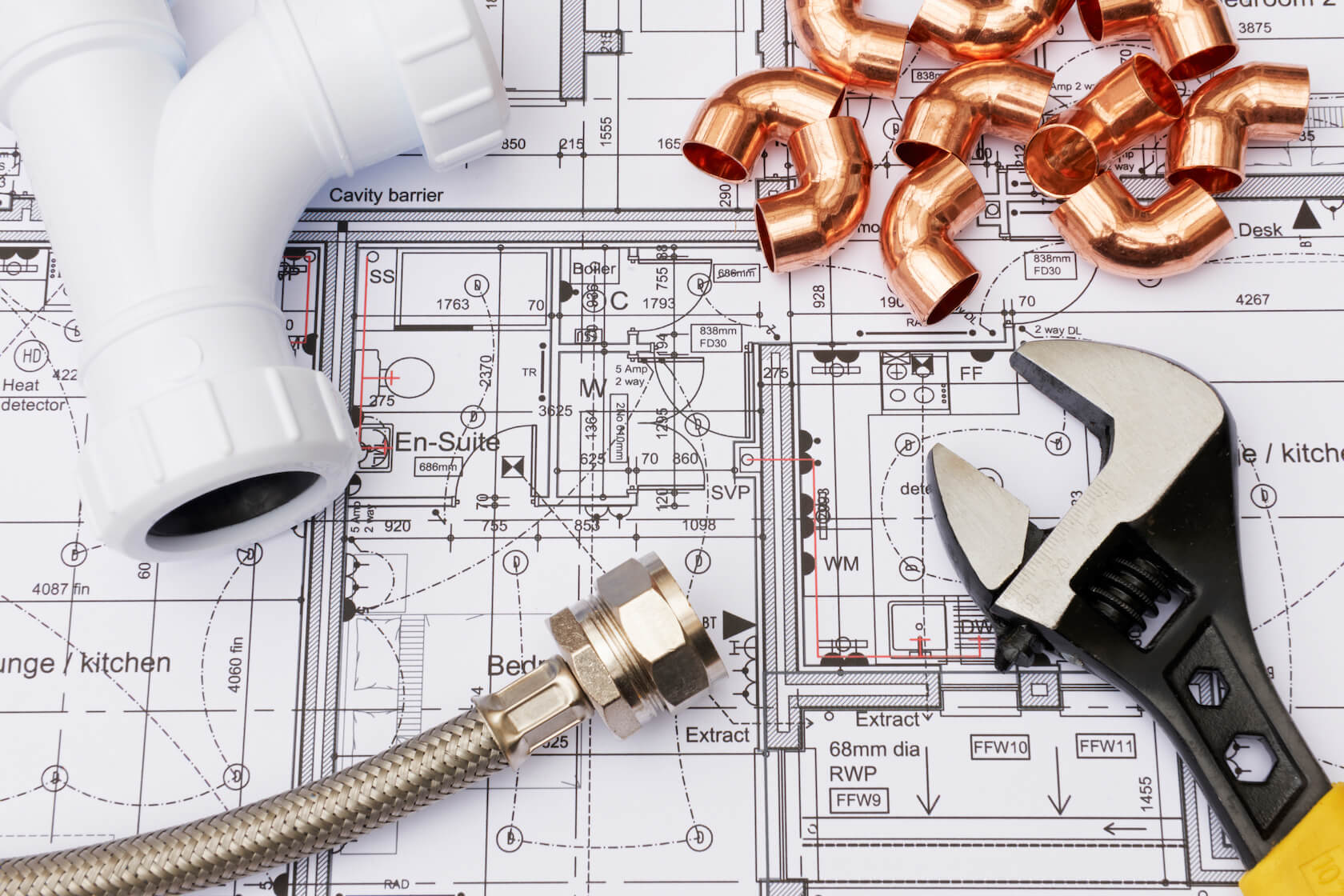Why The Structure of Your House's Plumbing System Matters
Why The Structure of Your House's Plumbing System Matters
Blog Article
They are making several great annotation on the subject of Plumbing Installation 101: All You Need to Know as a whole in the article underneath.

Comprehending just how your home's pipes system works is necessary for each homeowner. From providing tidy water for alcohol consumption, cooking, and bathing to securely getting rid of wastewater, a well-maintained pipes system is crucial for your household's health and wellness and convenience. In this thorough overview, we'll check out the complex network that composes your home's pipes and deal tips on maintenance, upgrades, and dealing with typical issues.
Introduction
Your home's plumbing system is more than just a network of pipes; it's a complex system that ensures you have access to tidy water and reliable wastewater elimination. Recognizing its parts and how they work together can help you stop pricey repair services and make certain every little thing runs efficiently.
Standard Elements of a Pipes System
Pipelines and Tubes
At the heart of your pipes system are the pipelines and tubes that bring water throughout your home. These can be made from different materials such as copper, PVC, or PEX, each with its advantages in terms of resilience and cost-effectiveness.
Fixtures: Sinks, Toilets, Showers, and so on.
Components like sinks, bathrooms, showers, and tubs are where water is made use of in your house. Recognizing exactly how these fixtures connect to the plumbing system aids in detecting problems and intending upgrades.
Shutoffs and Shut-off Points
Valves control the circulation of water in your pipes system. Shut-off shutoffs are vital throughout emergencies or when you need to make fixings, permitting you to isolate parts of the system without disrupting water flow to the entire residence.
Water System System
Main Water Line
The main water line attaches your home to the local supply of water or a personal well. It's where water enters your home and is distributed to various components.
Water Meter and Pressure Regulatory Authority
The water meter procedures your water usage, while a pressure regulatory authority makes sure that water streams at a safe stress throughout your home's pipes system, avoiding damage to pipes and fixtures.
Cold Water vs. Warm water Lines
Comprehending the distinction in between cold water lines, which supply water directly from the major, and hot water lines, which lug heated water from the water heater, aids in repairing and planning for upgrades.
Drainage System
Drain Pipes Pipeline and Traps
Drain pipes lug wastewater far from sinks, showers, and toilets to the sewage system or sewage-disposal tank. Traps protect against sewage system gases from entering your home and additionally catch particles that could create blockages.
Ventilation Pipes
Air flow pipes allow air right into the drain system, avoiding suction that can slow water drainage and trigger catches to empty. Proper air flow is important for preserving the honesty of your plumbing system.
Relevance of Proper Water Drainage
Guaranteeing proper drain protects against backups and water damages. Consistently cleaning up drains and keeping traps can avoid costly repair services and expand the life of your plumbing system.
Water Heater
Types of Water Heaters
Hot water heater can be tankless or traditional tank-style. Tankless heating systems warm water on demand, while storage tanks save heated water for instant usage.
Upgrading Your Pipes System
Factors for Updating
Upgrading to water-efficient fixtures or changing old pipelines can improve water high quality, reduce water expenses, and raise the value of your home.
Modern Plumbing Technologies and Their Advantages
Explore innovations like clever leak detectors, water-saving bathrooms, and energy-efficient hot water heater that can save money and reduce environmental influence.
Cost Factors To Consider and ROI
Calculate the in advance expenses versus long-term financial savings when taking into consideration plumbing upgrades. Numerous upgrades pay for themselves with lowered energy bills and fewer repair work.
How Water Heaters Connect to the Plumbing System
Recognizing how water heaters link to both the cold water supply and hot water distribution lines helps in detecting problems like inadequate warm water or leaks.
Upkeep Tips for Water Heaters
Regularly flushing your water heater to remove sediment, inspecting the temperature level setups, and evaluating for leakages can expand its life-span and boost power performance.
Common Plumbing Issues
Leaks and Their Causes
Leaks can happen because of maturing pipes, loosened installations, or high water stress. Dealing with leaks quickly avoids water damages and mold and mildew development.
Blockages and Obstructions
Blockages in drains and toilets are frequently brought on by purging non-flushable products or a buildup of grease and hair. Making use of drain screens and bearing in mind what drops your drains pipes can stop obstructions.
Indicators of Plumbing Problems to Expect
Low water pressure, slow drains pipes, foul odors, or uncommonly high water bills are indicators of prospective plumbing issues that should be resolved immediately.
Plumbing Upkeep Tips
Routine Inspections and Checks
Set up yearly pipes evaluations to capture problems early. Look for indications of leaks, deterioration, or mineral build-up in faucets and showerheads.
DIY Upkeep Tasks
Simple jobs like cleaning tap aerators, checking for toilet leakages utilizing color tablet computers, or insulating revealed pipes in chilly climates can stop major plumbing concerns.
When to Call an Expert Plumber
Know when a pipes concern requires expert proficiency. Trying complex repair services without correct understanding can bring about even more damage and greater repair work prices.
Tips for Decreasing Water Use
Easy routines like dealing with leaks promptly, taking much shorter showers, and running full lots of laundry and meals can preserve water and lower your utility costs.
Eco-Friendly Pipes Options
Consider lasting pipes materials like bamboo for flooring, which is durable and environment-friendly, or recycled glass for countertops.
Emergency Readiness
Actions to Take Throughout a Plumbing Emergency
Know where your shut-off valves lie and just how to turn off the supply of water in case of a ruptured pipeline or significant leakage.
Relevance of Having Emergency Get In Touches With Helpful
Maintain call information for local plumbing technicians or emergency solutions conveniently offered for fast response during a plumbing crisis.
Environmental Effect and Conservation
Water-Saving Fixtures and Home Appliances
Setting up low-flow taps, showerheads, and bathrooms can substantially minimize water use without compromising efficiency.
DIY Emergency Fixes (When Suitable).
Momentary repairs like using duct tape to patch a leaking pipeline or positioning a pail under a trickling tap can reduce damage until a professional plumbing arrives.
Conclusion.
Understanding the anatomy of your home's pipes system equips you to preserve it successfully, conserving time and money on repair services. By following regular upkeep regimens and remaining educated about contemporary plumbing technologies, you can ensure your pipes system runs successfully for several years to come.
The Anatomy of Your Home s Plumbing System
Understanding the anatomy of your home s plumbing system is essential for any homeowner. It not only helps in identifying potential issues but also facilitates effective communication with professionals when repairs or upgrades are needed. Your home s plumbing system is more than just pipes and faucets; it s a complex network that ensures the efficient and hygienic flow of water in and out of your house. In this blog, we ll dissect the crucial components of your home s plumbing system. For those in Antelope Valley, Brock Plumbing is your trusted partner for all your plumbing needs, ensuring your system functions smoothly and efficiently.
Water Supply System
Main Water Line: This is where your home s plumbing system begins. The main water line connects your home to the public water supply or a private well. Pipes and Shut-off Valves: Pipes distribute water throughout your home. Shut-off valves are crucial for controlling the flow of water and making repairs without shutting off the entire system. Drainage System
Drain Pipes: These pipes carry waste and water away from sinks, toilets, and showers. Vents: Vents allow sewer gases to escape and help maintain proper pressure in the drainage pipes, ensuring efficient flow of wastewater. Traps: Every fixture has a trap, a U-shaped pipe that holds water and prevents sewer gases from entering your home. The most common is the P-trap under sinks. Fixtures and Appliances
Fixtures and appliances are the most interacted with parts of your plumbing system. They include sinks, toilets, showers, dishwashers, and washing machines. Each fixture and appliance has its own supply and drainage connection, ensuring they receive clean water and can dispose of wastewater effectively.
Water Heating System
Your water heater is a crucial component, providing hot water to various fixtures and appliances in your home. It can be tank-based or tankless, with each type having its own set of advantages and maintenance requirements. Regular maintenance is essential to ensure efficient operation and extend the lifespan of the unit.
Sump Pump
In areas prone to flooding or with high water tables, a sump pump is an essential part of the plumbing system. It s installed in the lowest part of your basement or crawlspace and pumps out water that accumulates, preventing flooding and protecting your home from water damage.
Septic System
Homes that are not connected to a municipal sewer system have a septic system and an underground wastewater treatment structure. Understanding how to maintain your septic system is crucial to prevent backups, odors, and early system failure.
Conclusion
Your home s plumbing system is a complex and essential network, ensuring the efficient and hygienic flow of water in and out of your property. Understanding its key components helps in maintaining it properly and identifying issues before they escalate into major problems. For residents in Antelope Valley, Brock Plumbing is dedicated to providing top-notch services, ensuring that every part of your plumbing system is in perfect working order. Trust our team of professionals to handle all your plumbing needs, ensuring your home remains comfortable, safe, and well-maintained.
https://brockplumbinganddrains.com/blog/the-anatomy-of-your-homes-plumbing-system/

I hope you liked our excerpt about The Inner Workings of Your Home's Plumbing. Thank you so much for finding the time to read through our content. Do you know about anybody else who is excited about the subject? Do not hesitate to share it. We truly appreciate reading our article about The Inner Workings of Your Home's Plumbing.
Book A Service Report this page